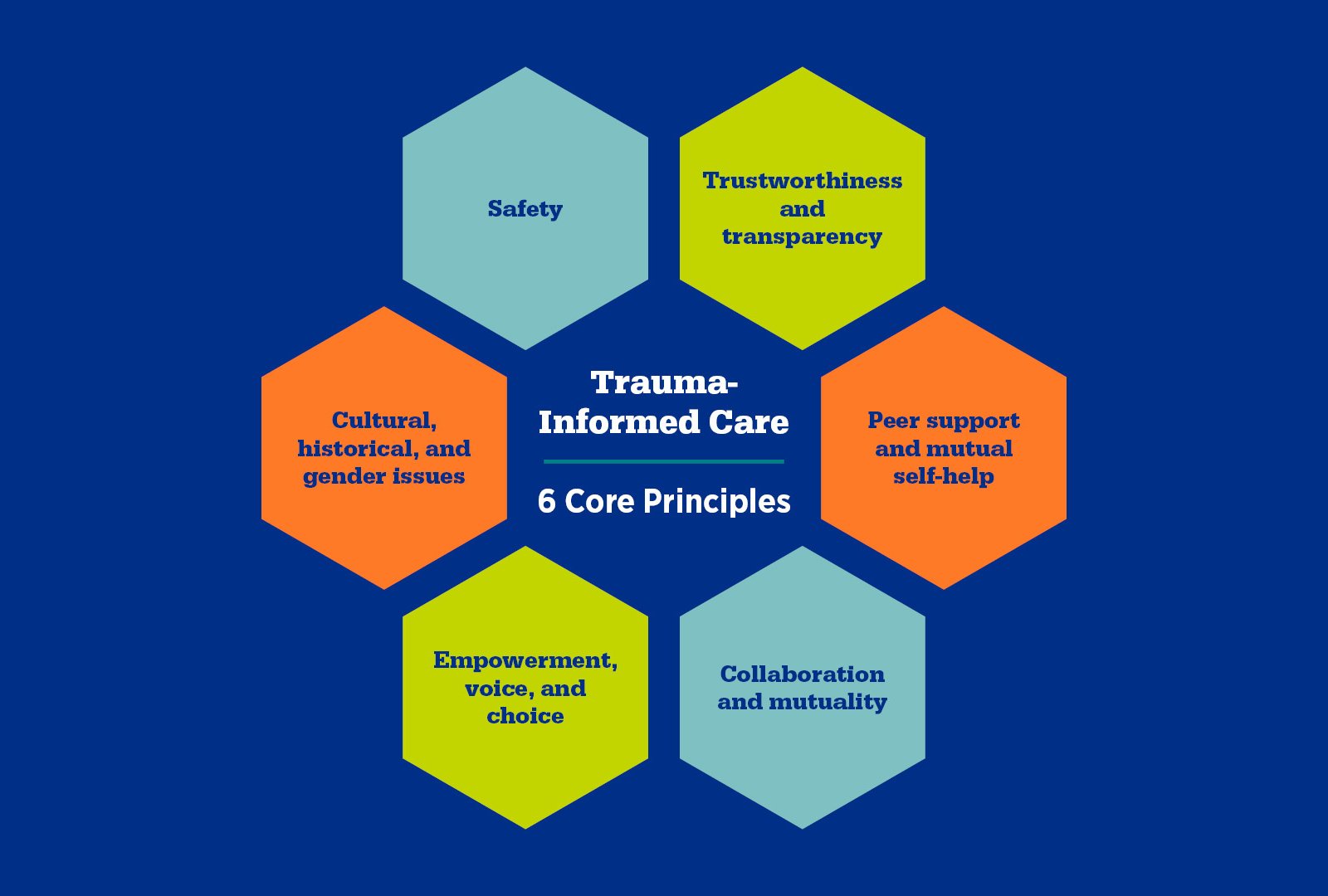What is Trauma-Informed Therapy
Trauma-informed therapy is a therapeutic approach that recognizes and prioritizes the impact of trauma on an individual's life, particularly when dealing with the effects of abuse. When someone has experienced abuse, their emotional and physical responses can often be intertwined, and trauma-informed therapy helps address these complexities in a way that is sensitive to the person’s past experiences.
Key Aspects of Trauma-Informed Therapy:
Safety:
The therapist creates a safe, supportive environment where the individual feels physically, emotionally, and psychologically safe. This is crucial for someone who has experienced abuse.
The therapist ensures that the client is in control of the pace of therapy, offering a sense of empowerment and avoiding re-traumatization.
Trustworthiness and Transparency:
Therapy is based on building trust, which may be hard for individuals who have been abused. The therapist is clear and open about what to expect during sessions and respects boundaries.
The therapist acknowledges the power imbalance inherent in the therapeutic relationship and works to create a space where the client feels heard and respected.
Choice and Empowerment:
Clients are given a voice in their therapy process. They can decide on the focus of sessions and are encouraged to make decisions that benefit their healing.
Trauma-informed therapy helps individuals regain control over their lives and rebuild their sense of self-worth, often eroded by abuse.
Collaboration:
The therapist collaborates with the client, creating a treatment plan together. This helps the client feel actively involved in their healing and fosters a sense of agency.
The therapist helps the individual understand how past trauma may be affecting their current behaviors, feelings, and relationships.
Cultural, Historical, and Gender Sensitivity:
The therapist is mindful of the client’s cultural, historical, and gender experiences, recognizing how these factors can shape their trauma and recovery.
Therapy is adapted to meet the unique needs of each individual, acknowledging the role that their background and identity play in their healing process.
Specific Focus Areas in Trauma-Informed Therapy for Abuse Survivors:
Processing the Emotional Effects:
Emotional regulation: Abuse survivors often struggle with intense emotions like shame, guilt, fear, and anger. Therapy helps individuals learn to regulate and express their emotions in healthy ways.
Grief and loss: The therapist helps the individual process the emotional impact of their trauma, including any losses (e.g., loss of trust, safety, or relationships).
Rebuilding self-worth: Abuse often leads to feelings of worthlessness and self-blame. Therapy helps individuals rebuild their sense of self-worth and identity.
Addressing the Physical Effects:
Somatic therapy: Some trauma survivors experience physical manifestations of abuse, such as chronic pain, tension, or exhaustion. Somatic therapies can help release stored trauma from the body.
Grounding techniques: Therapy often includes grounding exercises to help survivors stay present and connected to their bodies, reducing feelings of dissociation or numbness.
Managing anxiety and PTSD symptoms: Abuse can lead to symptoms of anxiety, panic, and post-traumatic stress disorder (PTSD). Trauma-informed therapy often uses techniques such as mindfulness, relaxation, and cognitive-behavioral therapy (CBT) to address these issues.
Trauma-Specific Techniques:
Cognitive Behavioral Therapy (CBT): This helps clients identify and challenge negative thought patterns related to the trauma, such as beliefs of unworthiness or fear of future harm.
Eye Movement Desensitization and Reprocessing (EMDR): This is a specific type of therapy often used for trauma survivors. It helps individuals reprocess traumatic memories and reduce their emotional charge.
Narrative Therapy: Clients are encouraged to tell their story, reframing the trauma in a way that empowers them to gain control over their narrative and redefine their identity.
Healing from Powerlessness:
Abuse often leaves individuals feeling powerless. Trauma-informed therapy works to empower survivors by helping them recognize their strengths, rebuild trust in their abilities, and regain control over their lives.
In summary, trauma-informed therapy for abuse survivors involves a compassionate, empathetic approach to healing that addresses both the emotional and physical effects of abuse. The therapy is designed to be sensitive to the trauma history of the individual, offering them control, safety, and the space to process their experiences at their own pace. By focusing on empowering the survivor and providing tools to manage the effects of abuse, this therapy offers a comprehensive path toward healing.
Seeking Trauma Therapy Today
If you or someone you know is struggling with the effects of abuse, seeking trauma-informed therapy can be a powerful step toward healing. This therapeutic approach helps individuals process the emotional and physical complexities of trauma, empowering them to regain control and rebuild their lives. If you're ready to start your healing journey, reaching out to a trauma-informed therapist today can help you feel supported, heard, and understood. Don't wait to begin the process of recovery—take the first step towards reclaiming your sense of self and peace.

